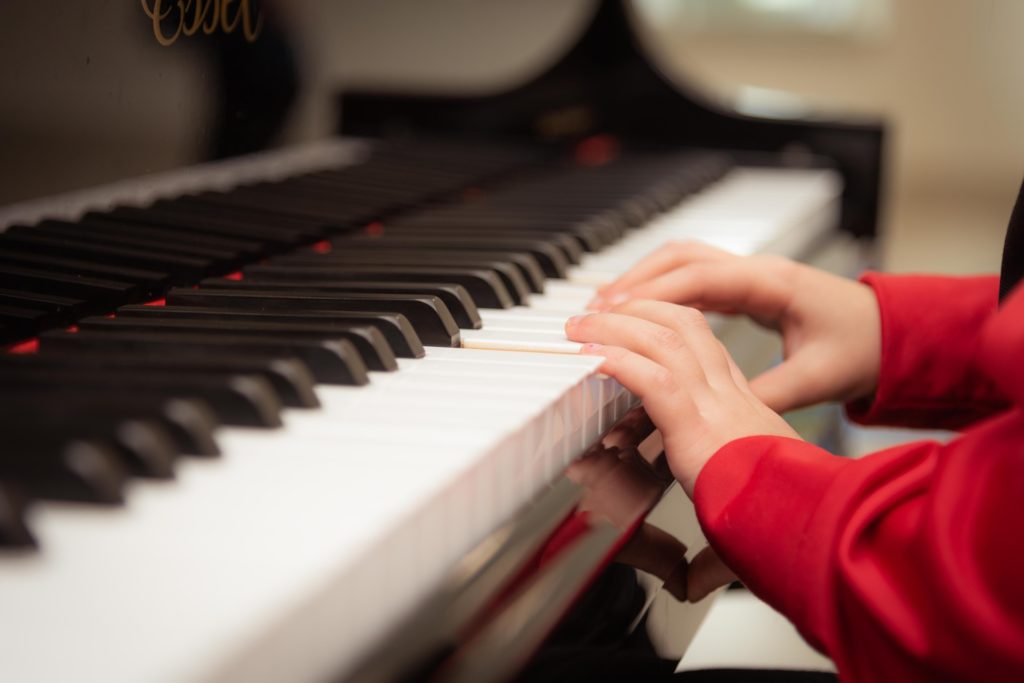8 Cognitive effects of music
The connection between mind, music and the psychology of music that follows, is the element that makes music important in the personal growth of the individual. Active listening and the practice of music stimulates the cognitive functions of the child, that is, they stimulate those processes that are the basis of the knowledge of reality and therefore of growth.
Music is powerful, it reaches the deepest part of our brain, so it acts on the deepest moods, on our emotions. It nourishes the mind and spirit, but it is also fun. Through music, children can develop expressive and creative potential. It is a real form of communication with which we come into contact from the first days of our life: the music that a child listens to greatly influences their ability to understand, learn and love.
Thanks to music, a child can develop their listening and observation skills; learn to express themselves; learn to externalise ideas and emotions; it develops their creativity and imagination; it develops the ability to communicate; it helps building its own critical ability. In addition, music is capable of increasing the child’s ability to concentrate, it promotes memory, it gets used to controlling emotions and it strengthens self-esteem. Music is a real benefit for everyone: letting children listen to music is therapeutic and depriving them of it would be like denying them a healthy development of their cognateness.
Playing an instrument at an early age improves language, reading skills, strengthens mathematical reasoning, slows down brain ageing, and helps manage anxiety.

Various studies have confirmed the importance of music in the development of an individual to the point of affirming that prolonged musical training over time, in childhood as well as adolescence, positively affects cognitive skills, personality, ambitions and, hence, on growth. Teenagers with a musical background have developed higher cognitive skills, higher school grades and are more open and ambitious. According to some studies, music is more effective than other activities, such as sports, theater and dance.
Let’s see in detail the cognitive benefits of music.
It improves reading skills because the ability to read sounds, understand the rhythm, learn sound patterns is the basis of the music study. All these skills facilitate the reading process.
It strengthens mathematical reasoning because, like mathematical relationships, there are intervals in the scales in music, the arrangement of the keys and the subdivisions of the rhythmic trend. In this sense, music has a mathematical nature and children who practice it tend to have excellent results also in mathematics.
It improves school grades in fact, in some studies it has been found that schools where music education was included can increase overall average grades in other lessons.
It develops sense-motor skills and counteract ageing: according to a study by the Department of Neurology at Harvard Medical School “playing a musical instrument is an intense, multi-sensory and motor experience that usually starts at an early age and requires the acquisition and maintaining a wide range of skills throughout the life of a musician”.
It develops the connections in the brains of children in the period from 6 to 8 years: in fact, in this age group, music interferes with normal brain development and produces lasting changes both at the motor and brain level. Learning to play requires coordination, so the different areas of the brain come into contact to coordinate and playing are in constant “training”. A lot of dexterity is required to play an instrument and this develops the motor cortex.
It increases short- and long-term memory as it requires different memorization efforts.
It improves attention and the ability to control emotions because, being the cerebral cortex of the musicians thicker, the areas of aggression and depression are under control.
It improves creativity, as it improves the communication skills between the right and left hemisphere, for this reason the musicians are able to immediately analyze more stimuli and be more creative.
These improvements also spill over into social relationships since music itself is also a cause for socialization. How many times have we found ourselves singing loudly with strangers and a guitar in the middle of a square?
It’s more than a feeling, when I hear that old song, they used to play I begin dreaming!

